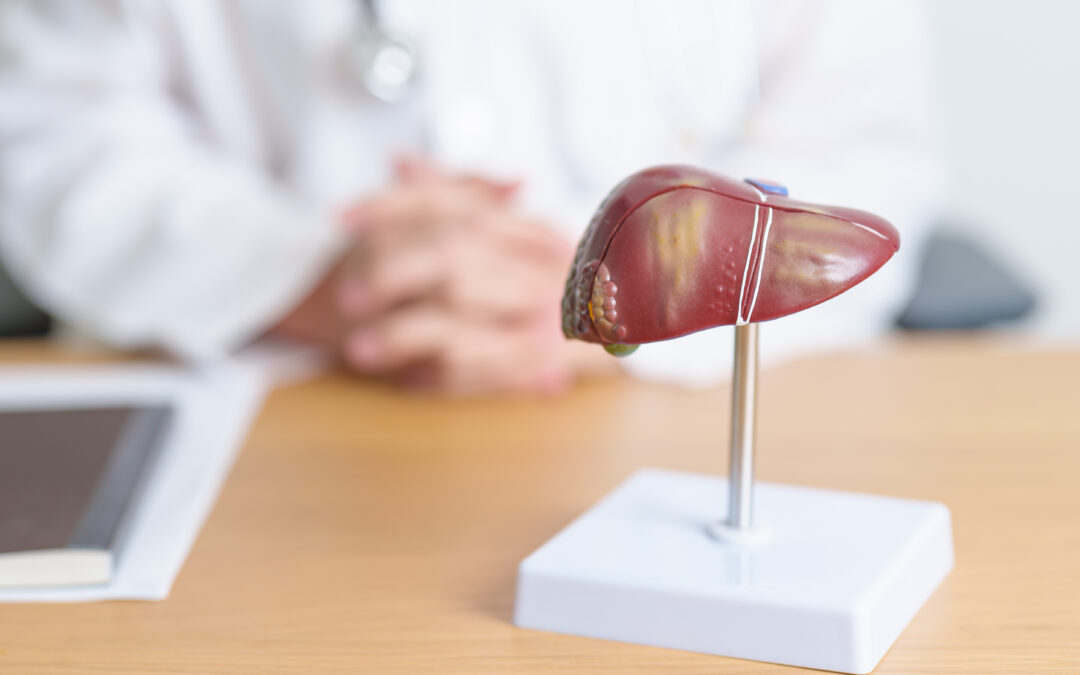The liver, a vital organ in the human body, plays a crucial role in maintaining overall health and well-being. It is responsible for essential functions such as detoxifying harmful substances, aiding digestion, and regulating metabolism. This makes the liver a key player in our body’s ability to function effectively.
Despite its remarkable ability to regenerate, the liver is not invincible. Prolonged exposure to certain risks, particularly excessive alcohol consumption, can lead to significant and sometimes irreversible damage. Alcohol use disorder (AUD), commonly referred to as alcoholism, is characterized by an inability to control or cease alcohol use despite adverse consequences. AUD is a major risk factor for liver-related illnesses.
Understanding Liver Damage
Liver damage, or hepatic damage, is a significant medical concern characterized by the impairment of liver functions. The liver, a critical organ in the human body, has multifaceted roles essential for sustaining life. Beyond its well-known function of detoxifying harmful substances like alcohol, the liver is involved in a wide array of metabolic and regulatory processes.
The liver’s responsibilities extend far beyond filtering toxins. It is involved in the production of vital proteins and cholesterol, the storage of nutrients like vitamins and minerals, and the regulation of blood clotting mechanisms. Furthermore, the liver plays a key role in metabolizing carbohydrates, fats, and proteins, converting them into energy and essential substances the body requires.
Impact of Alcohol on the Liver
When alcohol is consumed, it is the liver that processes it. The liver can metabolize a certain amount of alcohol at a time, rendering the excess harmless. However, excessive alcohol consumption can overwhelm this system. Over time, this leads to an accumulation of fatty deposits in the liver, inflammation, and the development of scar tissue – a condition known as cirrhosis. This scarring can impede liver function, and as it progresses, more and more of the liver becomes unable to function properly.

Signs of Liver Damage from Alcohol
Alcohol-related liver damage often progresses silently and gradually, making early detection challenging, although there are a few factors to watch out for. Here are some noticeable signs that may be associated with early stages of liver damage from alcohol:
- Persistent fatigue and weakness: One of the initial signs can be a general feeling of fatigue and weakness, not attributable to other factors. This occurs as the liver struggles to perform its vital functions efficiently.
- Nausea or vomiting: Regular nausea or vomiting, particularly after drinking alcohol, can indicate early liver issues.
- Loss of appetite: A noticeable decrease in appetite, potentially leading to weight loss, can also be a sign.
- Abdominal pain and swelling: As the liver becomes inflamed or enlarged due to alcohol abuse, one might experience discomfort or pain in the upper right side of the abdomen. Swelling in the abdomen, known as ascites, can also occur in more advanced cases.
- Jaundice: One of the most recognizable signs is jaundice, where the skin and the whites of the eyes take on a yellowish hue. This occurs due to the buildup of bilirubin, a byproduct of red blood cell breakdown, which a damaged liver cannot process effectively.
- Changes in mental state: Confusion, difficulty concentrating, or mood swings can be early signs of liver damage affecting the brain, known as hepatic encephalopathy.
- Itching: Unexplained itching of the skin can be a symptom resulting from bile products deposited in the skin.
- Bruising or bleeding easily: As liver function declines, clotting factors are not produced efficiently, leading to easy bruising or bleeding.
Understanding Alcohol-Related Liver Disease (ARLD)
Liver damage from alcohol doesn’t occur overnight but develops progressively. Alcohol-related liver disease (ARLD) is a spectrum of conditions caused by excessive alcohol consumption that affects the liver. Understanding each phase of ARLD is important for diagnosis, treatment, and potentially reversing the damage. The three stages of alcoholic liver disease include:
1. Alcoholic Fatty Liver Disease
- Description: This is the earliest stage of ARLD. Excessive alcohol intake leads to the accumulation of fat in liver cells, known as steatosis. At this stage, the liver enlarges and becomes heavier.
- Symptoms: Often asymptomatic, some individuals may experience mild discomfort in the upper abdomen, fatigue, or a general feeling of being unwell.
- Reversibility: This stage is usually reversible if alcohol consumption is ceased and a healthy lifestyle is adopted.
2. Alcoholic Hepatitis
- Description: This intermediate stage involves inflammation of the liver. While it can occur independently, it often follows prolonged excessive drinking. Alcoholic hepatitis can vary in severity; some cases are mild and reversible, while others can be severe and life-threatening.
- Symptoms: Symptoms include jaundice, abdominal pain and swelling, nausea, vomiting, fever, and fatigue. In severe cases, it can lead to complications like fluid accumulation in the abdomen, kidney failure, and mental confusion.
- Reversibility: Mild cases can be reversed with abstinence from alcohol and appropriate medical treatment, but severe cases can cause significant damage and may lead to liver failure.
3. Cirrhosis
- Description: Cirrhosis is the most advanced stage of ARLD. It involves scarring of the liver tissue (fibrosis) and the formation of nodules that disrupt the liver’s normal structure and function. This damage is permanent and can lead to liver failure.
- Symptoms: Early cirrhosis may be asymptomatic, but as it progresses, symptoms like jaundice, easy bruising and bleeding, intense itching, fluid accumulation in the abdomen, and cognitive issues due to the buildup of toxins can occur.
- Reversibility: Cirrhosis is irreversible. Treatment focuses on managing symptoms, preventing further damage, and monitoring for liver cancer. In end-stage liver disease, a liver transplant may be the only option.
Treating Alcohol-Related Liver Disease
The liver can regenerate and heal, especially in the early stages of damage, making early intervention and diagnosis essential. After receiving a diagnosis of ARLD, completely abstaining from alcohol is crucial to prevent further liver damage. In order to achieve abstinence, some individuals may first require treatment at an alcohol rehab facility. Additional treatment can vary depending on the stage and severity of the liver disease. Some treatment options may include:
- Medication: Medication can be an important part of recovery from AUD, as well as for treating alcohol-related liver disease. To treat ALRD, doctors may prescribe medications for symptom management, reducing inflammation, and treating infections. Additionally, treatment of alcohol addiction may include medication-assisted treatment (MAT) like naltrexone, which can assist with cravings for alcohol.
- Diet and nutrition: A balanced diet is important to support both addiction recovery and liver health. Common dietary recommendations for those with liver damage include reduced sodium and adequate protein.
- Physical activity: Regular exercise supports sustained recovery, assists with weight management, and reduces liver fat.
- Psychological support: Counseling, therapy, and support groups for dealing with alcohol dependence.
- Mental health treatment: Addressing addiction and co-existing mental health issues.
- Liver transplantation: In severe cases, the damaged liver is replaced with a healthy one from a donor.
Treatment for alcohol-related liver damage is comprehensive, extending beyond the physical symptoms and into the root cause of the issues. Healthy Life Recovery has experienced unprecedented success in treating addiction using our San Diego four pillars program, which establishes a foundation for recovery rooted in healthy and sustainable living habits. By implementing these concepts, our patients have a greater chance of achieving a lifestyle that is healthy and free from addiction.

Begin Healing with Healthy Life Recovery
When facing the dual challenges of alcohol use disorder and potentially related health issues like liver damage, it can be necessary to seek a treatment solution that provides comprehensive care, including medical supervision. At Healthy Life Recovery, we understand the complexities of treating addiction alongside physical health concerns and co-occurring conditions. Our treatment programs include medically supervised detoxification, ensuring a safe and supportive environment for those in need of specialized care.
If you or a loved one is grappling with these issues, don’t hesitate to reach out to Healthy Life Recovery. We’re ready to assist you in finding the right treatment approach tailored to your unique needs. Contact us today and take the first step towards a healthier, alcohol-free future.






